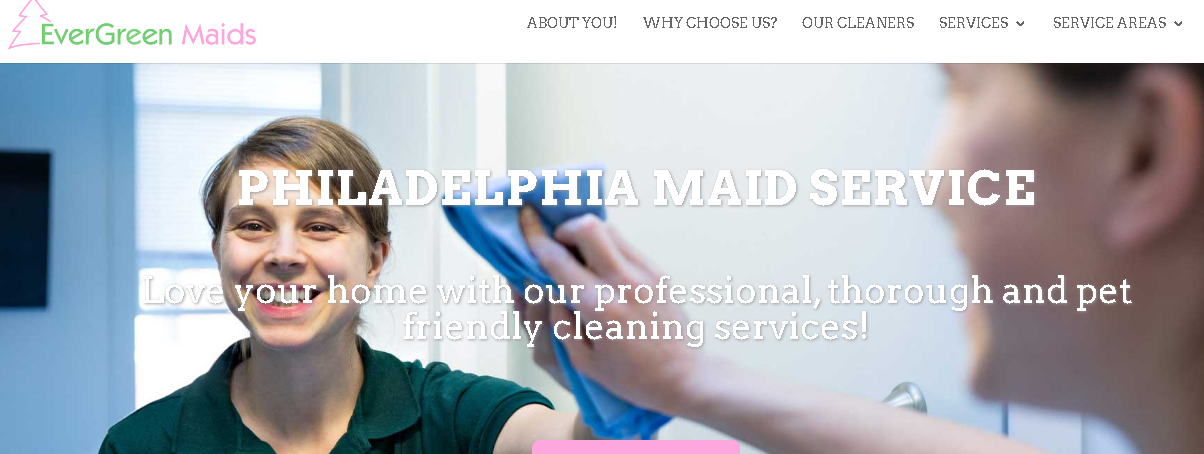Picking an employee structure and legal business structure for your cleaning business isn’t a game of chance or a quick, casual decision. Be sure to consider the record keeping, attorney’s fees, and tax filing requirements before you set up your business.
If you’re interested in starting a residential cleaning business, I have few questions for you: What are your long-term goals and vision for the business? How do you see your business operating? Do you envision teams of uniformed maids in company vehicles cleaning with company-branded supplies? Or do you want one maid providing their own transportation and carrying their own cleaning? Is your goal to create a company that is highly visible with a recognizable brand or is the emphasis going to be more on affordability for the customer? If you’re my client, the answers to these questions will lead to a recommendation of the best legal structure for your business.
Pros and Cons
Often new clients tell me they want to operate a cleaning business with teams, but want to classify their workers as independent contractors. Sorry, you can’t do that. If you want to operate your residential cleaning service with independent contractors there are a lot of rules to follow. Employees also come with regulations attached to them. Employers must comply with payroll tax requirements. This includes paying half of the FICA taxes (Social Security and Medicare) for each employee. Other responsibilities include payment of Unemployment Insurance and Worker’s Compensation Insurance. An independent contractor is solely responsible for these taxes.
With independent contractors, you must report the amount you have paid each year for that person on a Form 1099-MISC, but you don’t have to withhold or pay FICA taxes. Hiring employees allows you to control and manage their time and actions during the work day, train them to perform their jobs in a specific way, and schedule the days and hours they work. With an independent contractor, you can assign duties and impose a deadline with a final result, but you cannot tell them HOW to get the job done.
 It’s important not to misclassify an employee as an independent contractor. The IRS considers all workers to be employees unless you can prove otherwise. Try bending the rules associated with either of these legal structures, and you and your company could land in big trouble. You can choose whichever structure helps you achieve your goals as a business owner, but once you have made a decision it’s crucial to learn and follow the distinct rules and regulations governing that structure.How To Decide
It’s important not to misclassify an employee as an independent contractor. The IRS considers all workers to be employees unless you can prove otherwise. Try bending the rules associated with either of these legal structures, and you and your company could land in big trouble. You can choose whichever structure helps you achieve your goals as a business owner, but once you have made a decision it’s crucial to learn and follow the distinct rules and regulations governing that structure.How To Decide
You should consider hiring employees for your cleaning business if any of the following apply:
- You want to control the hours cleaning associates work.
- You want to pay the cleaning associates by the hour.
- You want to provide all of the cleaning supplies and equipment used by the cleaning associate.
- You plan to have your cleaning associates work in teams where the work is supervised.
- You want to provide the transportation for the cleaning associates.
- You want the cleaning associates to wear uniforms with your company logo.
- You would like the ability to direct or train cleaning associates about the details, manner and/or means by which a cleaning jobs and results should be accomplished. (For example, you want the right to control their work schedule as well as the number and frequency of breaks they take, the ability to review their performance or the power to oversee the type of equipment they use.)
You might consider working with independent contractors if the following applies:
- The cleaning associates can specify what days and hours they are available to work with their work schedules being established according to their specifications.
- The cleaning associates are paid a commission/percentage for each property cleaned and are never paid by the hour.
- The cleaning associates use their own cleaning supplies and equipment; however, if you are a cleaning business with an emphasis on environmentally safe products, you can require associates to use only products that meet certain standards.
- The cleaning associates work independently without any direct supervision from the business owner/supervisor.
- The cleaning associates provide their own transportation to and from each account.
- Instead of uniforms, the cleaning associates are required to adhere to a dress code.
The decision to choose an employee or independent contractor model for your business is a big one, with far-reaching implications. Before you lock in to one of these legal structures, it’s worth taking the time to think through your long-term business goals and do your homework on the rules and regulations governing both. Good luck with your decision!
Tammy Spivey is the owner of Maid Services of America and has provided consulting services to new and existing business owners in the residential cleaning industry for more than thirty years. She has helped launch hundreds of independent maid service companies throughout the U.S. and beyond.






